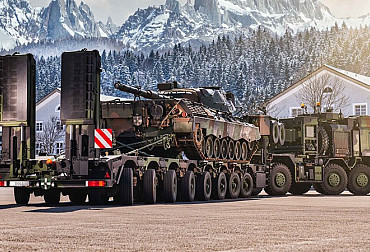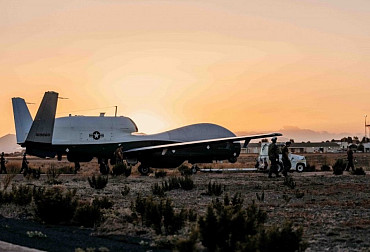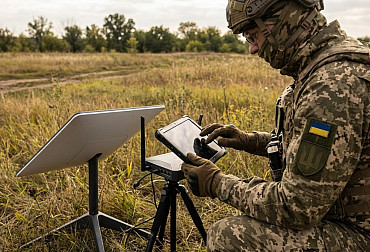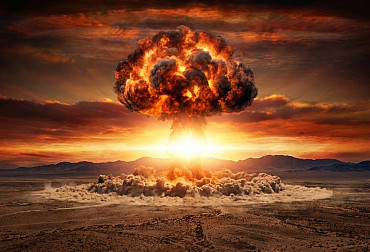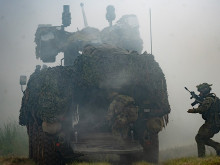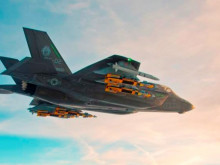NATO technology trends that will change global security by 2045 – implications for the Czech Republic
The North Atlantic Treaty Organization has published a strategic analysis of six key scientific and technological macro trends that will fundamentally transform the global security architecture over the next two decades. From artificial intelligence to biotechnology to the fragmentation of public trust, can the Czech Republic use these insights to strengthen its own security and technological sovereignty?
The world is changing at a dizzying pace, and technology is the main catalyst for this transformation. NATO, a key security actor of which the Czech Republic is a member, has presented a comprehensive analysis entitled "Science & Technology Macro Trends 2025-2045," which provides a comprehensive view of the future of science, technology, and their impact on global security over the next two decades.
The North Atlantic Alliance has identified six macro trends that will shape the world until 2045. These trends include the development of areas of strategic competition, the race for dominance in artificial intelligence and quantum technologies, the biotechnology revolution, deepening disparities in access to resources, the fragmentation of public trust, and growing technological integration and interdependence.
"Now more than ever, geopolitics and strategic decision-making are influenced and even driven by science and technology," said NATO Deputy Secretary General Radmila Šekerinská in the foreword to the report. This statement underscores how fundamentally the approach to international security is changing, with technological capabilities beginning to outweigh traditional military capacities.
New battlefields and strategic challenges for the Czech Republic
The first macrotrend identified by NATO concerns developments in areas of strategic competition, where scientific and technological progress is transforming the nature of competition both in traditional domains and in new spaces such as cyberspace, outer space, and the hybrid and information domains. For the Czech Republic, which is an active member of the Alliance and participates in international missions, this means adapting to new forms of conflict management.
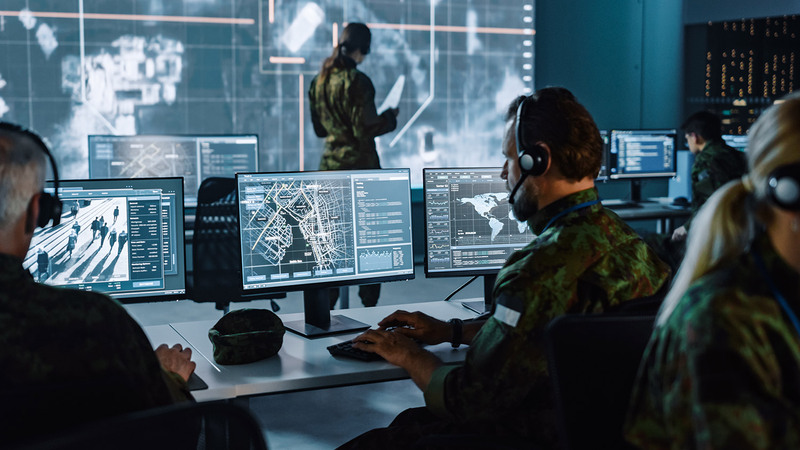
Cyberspace is becoming one of the main battlefields of the future, which is particularly relevant for the Czech Republic given that it already ranks among countries with advanced cyber security capabilities. The National Cyber and Information Security Agency (NÚKIB) and the National Cyber Center are steps in the right direction, but the NATO report suggests that these investments will need to be further strengthened.
Space is another area where strategic competition is expected to increase. Although the Czech Republic does not have its own extensive space program, Czech companies and research institutions are significantly involved in European space projects. This cooperation will be crucial, as according to the NATO report, more than 50% of critical infrastructure and services in OECD countries are dependent on space systems.
The race for technological superiority
The second macro trend focuses on the race for dominance in artificial intelligence and quantum technologies. These areas will transform a wide range of industries over the next 20 years and will also become areas of intensifying competition between dominant players.
"Attracting, training, and retaining talent will be a key battleground for technological competition," the report warns. For the Czech Republic, which has a strong tradition in mathematics, computer science, and physics, this represents both a challenge and an opportunity. Domestic universities such as the Czech Technical University, Masaryk University, and Brno University of Technology are already training world-class experts in the fields of artificial intelligence and quantum technologies, but the key question remains whether our country will be able to retain them.
The Czech Institute of Informatics, Robotics and Cybernetics (CIIRC) and the National Competence Center for Cyber Security (NC3) are examples of institutions that can help the Czech Republic keep pace in this area. However, the NATO report emphasizes that individual countries cannot succeed alone—sharing resources and expertise among allies will be essential.
The biotechnology revolution and its impacts
The third macro trend identified concerns the biotechnology revolution. According to NATO, synthetic biology and related technologies will have a revolutionary impact over the next 20 years, both in the civilian and military spheres.
"While the potential benefits of increased use of biotechnology are considerable, particularly in healthcare, the risks of harmful use are also enormous," the report warns. This requires careful consideration of security and defense implications, including the protection and sharing of research.
For the Czech Republic, which has a strong pharmaceutical industry and a growing biotechnology sector, this represents a significant area of potential growth. Companies such as Contipro, BioVendor, and SOTIO are already among the European leaders in their fields. At the same time, however, there is a growing need to secure biological research and regulate new biotechnologies that could be misused.
Widening disparities in access to resources
The fourth macro trend focuses on widening disparities in access to resources. According to the report, scientific and technological progress serves both as a factor widening disparities in access to resources and as a potential tool for economic development through solutions based on artificial intelligence, biotechnology, green technologies, and new materials.
This poses a significant risk for the Czech Republic, which is dependent on imports of strategic raw materials, including rare metals essential for modern technologies. The NATO report emphasizes that "economic resilience and security, as well as efforts to develop a circular economy, will become even more important for the management and distribution of resources in the next 20 years."
In response to these challenges, the Czech Republic has already joined European initiatives to secure critical raw materials and develop a circular economy. The Ministry of Industry and Trade is also working on technological self-sufficiency strategies that reflect the global trends identified in the Alliance's report.
Fragmentation of public trust
The fifth macro trend concerns the fragmentation of public trust. According to NATO, trust in science, institutions, and governments is vulnerable to further erosion and fragmentation, with technology, especially artificial intelligence, acting primarily as an accelerator of these challenges.
"Technology, especially artificial intelligence, is being used to undermine public trust in political representation, institutions, and science, and the future impact of these developments will be further complicated by growing political polarization," the report warns.
For the Czech Republic, which, like many other countries, is struggling with the problem of disinformation and declining trust in public institutions, this means investing in strategic communication, media literacy, and the regulation of digital platforms. Initiatives such as CzechELib and StopFake (platforms such as Zvol si info and Faktické.info also operate in the Czech Republic) are examples of efforts to promote scientifically based information and combat disinformation, but the Alliance report suggests that a much more systematic approach will be needed.
echnological integration and dependencies
The last identified macro trend concerns technological integration and dependencies. While scientific and technological advances will continue to provide solutions to complex problems, access to these solutions will not be equal.
"Future scientific and technological capabilities must be interoperable from the design stage," the report emphasizes. For the Czech Republic, as a smaller country with limited resources, this means the need for strategic cooperation both within NATO and the European Union.
Growing dependence on the private sector for critical defense needs is another challenge. The Czech Republic has a strong tradition in the defense industry, with companies such as Česká zbrojovka, Tatra, and ERA supplying equipment to NATO armed forces. However, the report suggests that even closer cooperation between the public and private sectors will be needed to ensure technological self-sufficiency in critical areas.
Significance for the future of Czech security
The NATO report presents a comprehensive view of a future in which science and technology will play a key role in shaping geopolitical and security realities. This implies several strategic imperatives for the Czech Republic.
First and foremost, it is necessary to strengthen investment in research and development in areas identified by the report as critical – artificial intelligence, quantum technologies, biotechnology, and new materials. The Czech Republic currently invests approximately 1.9% of its GDP in research and development, which is below the average for advanced OECD countries and below the EU target of 3% of GDP.
Furthermore, national strategies for cybersecurity, critical infrastructure protection, and strategic communication need to be developed, taking into account the trends identified in the NATO report. The national artificial intelligence strategy adopted by the Czech Republic in 2019 and followed up by an updated strategy in 2024 is a good start, but needs to be updated in light of the latest findings.
Last but not least, it is crucial to strengthen international cooperation, particularly within NATO and the EU. As the report emphasizes, "Allies will need to share expertise and resources to succeed in this race." For the Czech Republic, this means more active involvement in Alliance initiatives such as the Defense Innovation Accelerator for the North Atlantic (DIANA) and the NATO Innovation Fund.
The technological trends identified in the NATO report will have a profound impact on global security over the next 20 years. As a medium-sized European country with an open economy and a strong industrial tradition, the Czech Republic has a unique opportunity to specialize in selected areas and become a significant contributor to NATO's technological resilience.
The future of security will increasingly be defined by technological capabilities, and how the Czech Republic prepares for the identified trends will fundamentally influence its position in a world facing increasingly complex challenges.











